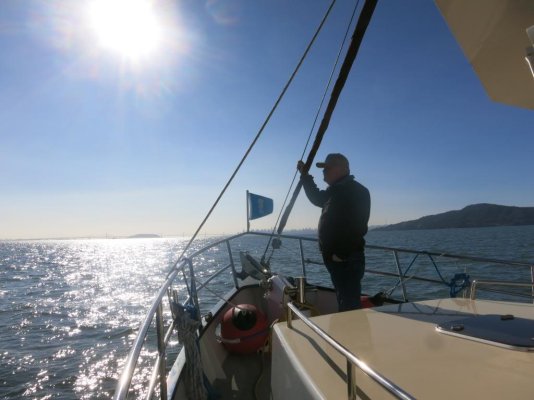Try this

. Don`t refuse the NOAA search, but tell them you don`t consent to it.
I've been reading this thread and wondering when this would come up.
In my first life I spent a few misguided years in the Military Police. We were trained to enter a house by saying "may I come in" while actually starting to enter the house. If the person backed up and allowed it, it was considered implied consent and treated the same as if they invited you in. I was caught off guard one day when someone said "Are you asking to come in or are you ordering me to allow you in? Because I'll certainly cooperate if it's an order." Well crap...now what?
I always figured I'd ask any non-USCG who requested to board if they were requesting permission to board. If they are asking permission, then no thank you, but maybe I can help you from here - what's up, sir? If they say no, were not asking we're telling. Then certainly, what heading and speed would you like me to maintain?
Boardings for safety inspections are different than boardings for probable cause that a crime has been committed. I'm sure every agency (actually, every court) views probable cause differently. But in my experience it's not an easy thing to just say you have probable cause and tear up someone's boat/car/house. Rather, it's easy to say you have probable cause at the time, but prosecuting based on what you find may be a little more difficult. And if LEO says they have probable cause - you must cooperate or you'll be face down in flexcuffs.
Using what they find in court might be a different story - I'd like to believe in my state (Virginia), if State or local LEO boarded under the authority to conduct a safety inspection and with no further probable cause started looking in nooks and crannies for a doob or a fish filet - then anything they found would be problematic to introduce as evidence. It does depend on the specific agency and their authority and the court's view.
Of course, I tend not to commit crimes so I'm not really concerned about a boarding other than on principal and I certainly won't be a jerk to a boarding officer just to make a point. But since I spent over 20 years defending the Constitution, I don't really want to see it trampled on.


